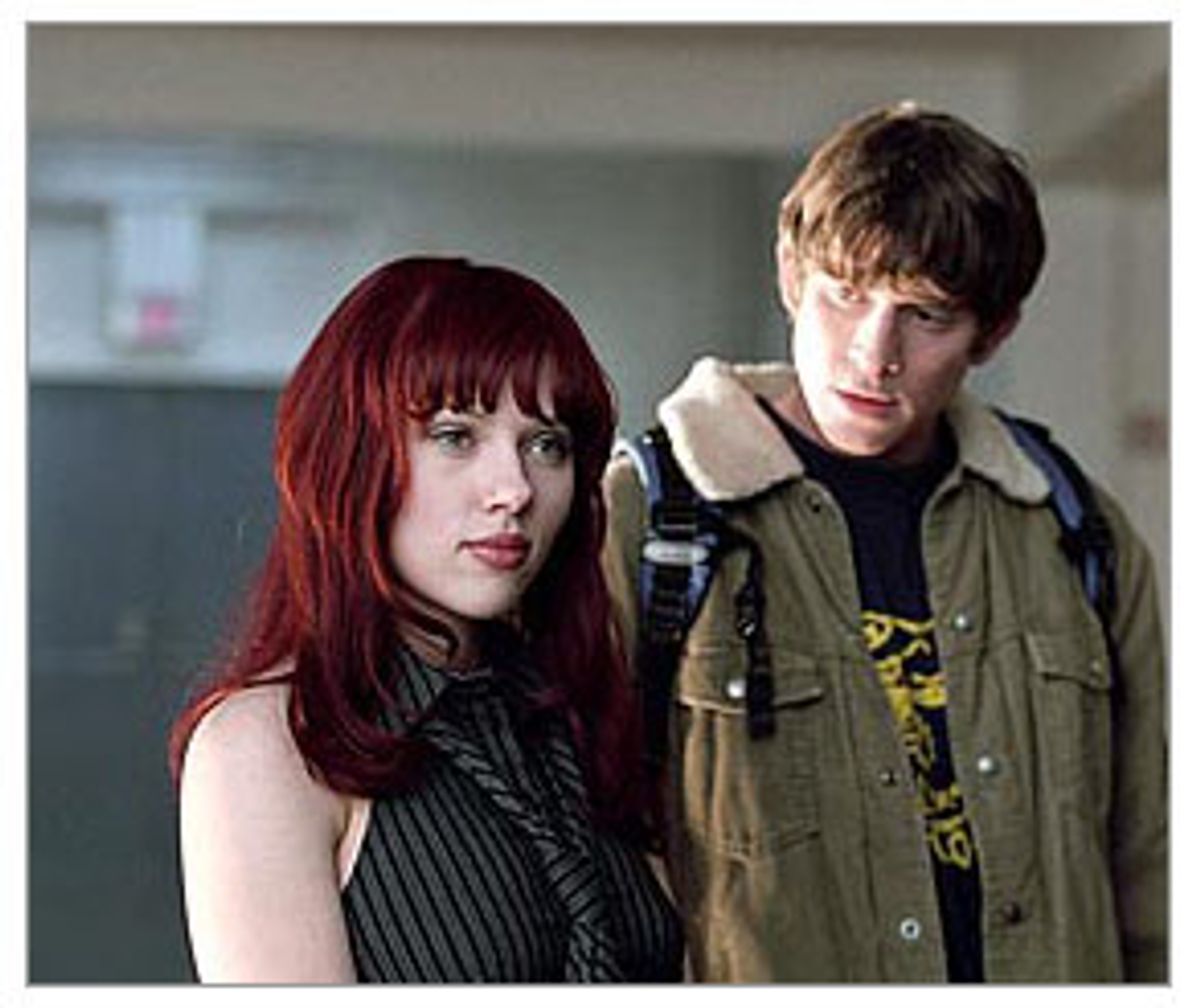When did teen movies get so disappointingly reputable? Not only do teenagers not have sex in the movies anymore; they're barely interested in it, beyond a little light petting. Forget "Fast Times at Ridgemont High" -- even "American Pie," which dealt more honestly with teenage sexuality from a women's point of view than almost any movie that came before it, seems to have been made in another age. In recent pictures like "Win a Date with Tad Hamilton!" and now Brian Robbins' "The Perfect Score," the issue of teenage sex isn't even modestly danced around; it's ignored altogether. That may be a cause for rejoicing among parents across the land who have long been convinced that there's "too much sex" in our society (whatever that means). But the rest of us are left wondering: Is it necessarily healthier for these movies to pretend, as they do, that teenagers are better off if they have no interest in sex altogether?
Because what teenager doesn't think about sex? "The Perfect Score" is an eminently defensible light entertainment, peopled with characters that are easy to like and care about. And at the beginning, at least, it toys with an idea that's morally questionable in a perfectly delightful sense: Disappointed by the SAT scores they've gotten, a group of teenagers including Erika Christensen (the supersmart one who's nonetheless crumpling under her parents' expectations of her), Chris Evans (the mediocre but ambitious one whose dream is to become an architect), Scarlett Johansson (a cool, sensible, sexy rich-girl punk) and Bryan Greenberg (who doesn't care about school at all but simply wants to get into the same college his girlfriend is already attending) set out to steal the answers for the next round of testing. They're helped by Darius Miles (an NBA star in real life), a stellar athlete who needs a higher test score not just to get into the school that's offering him a scholarship, but to please his insistent mother. Leonardo Nam is the stoner who, at the beginning, seems to be of little use at all but who, of course, ends up pulling more than his weight.
The early part of the movie takes a fairly daring jab at the notion of standardized testing to begin with: "The SAT is about who you'll be," laments one of the movie's characters, decrying the fact that America's young people are judged largely by how good they are at penciling in a bunch of circles, answering questions that have been devised largely by white men. Higher test scores for students mean more money for the schools, which means schools have a vested interest in preparing students to do well on the tests, as opposed to actually encouraging real learning. Evans' mother, an elementary-school teacher, talks about how her young students are already learning to "bubble in," suggesting that standardized testing has already become, well, the standard.
All that gives you a reason to cheer when the kids decide to break into the Educational Testing Service building (which, conveniently, Johansson's father happens to own) to steal the goods. Of course, at a certain point they see the error of their ways and realize that cheating is wrong, and besides that, they recognize that they always had the skill and aptitude within themselves to do well on the test to begin with.
Which means, if you think about it, that they're rousing successes at filling in the "the man's" bubbles. (Congratulations, kids! You've succeeded in becoming tools of the system!) But even if you let that slide, the movie has other problems, chiefly that these attractive, appealing kids are allowed to do little more than flirt with one another. "The Perfect Score" is lively and fun in places, but overall it has a listless, tepid feel, like a movie that's trying very hard not to be about sex.
The only relief in that department comes from the lascivious stoner character played by Nam: He looks at just about every woman in the movie, young and old-ish, as if he were unpeeling her garments with his eyes, and his forthrightness just makes you laugh. Nam is sleepily hilarious in every scene: He always looks as if he's just tumbled out of a bed that hasn't been made in three years, and his comic timing is genius in its elasticity. He's also the movie's puckish truth-teller, pulling off a few hilarious, hugely politically incorrect jokes (one of which involves the driving skills of members of a certain ethnic group).
If the movie's writers (Mark Schwahn, Marc Hyman and Jon Zack) dare to come up with gags like that, you have to wonder why the rest of the movie is so damnably tame. In any event, parents of teenagers can breathe easy: "The Perfect Score" has very little sexual innuendo (save for a quick cut of Johansson's cherry-printed underpants) and teaches a valuable lesson at the end. Teenagers no longer have to go to the movies to get examples of how not to behave: They're left to figure all that out on their own -- as if being a teenager weren't hard enough in the first place.



Shares